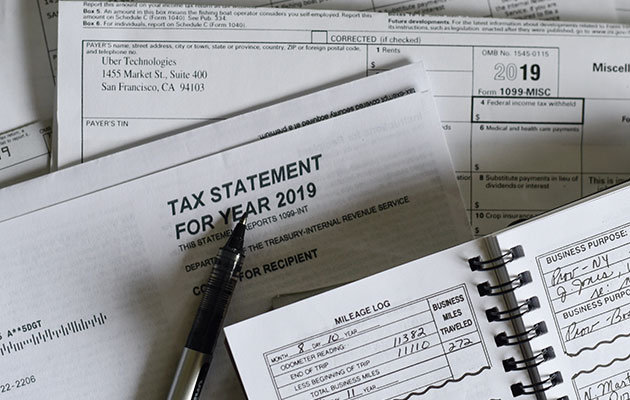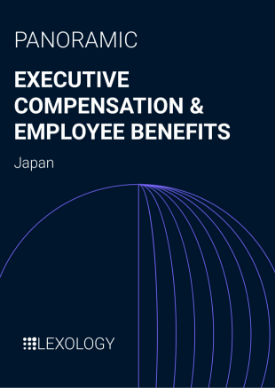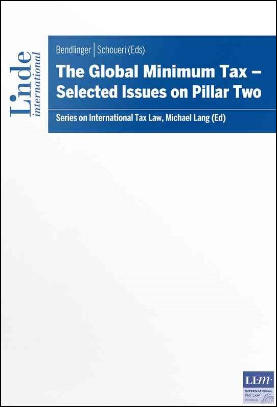-
Articles
Tax Implications on Dividends paid out from the Profits of both Thai Board of Investment-Promoted Activities and non-Board of Investment Activities
Whenever a Thai Company pays dividends to its shareholders, the Thai Civil and Commercial Code (“CCC”) stipulates that “the dividends shall be paid out of profits”1 and “shall be distributed in proportion to the amount paid by the shareholders on each share”2. The dividends received are classified as income in accordance with assessable income3 under the Thai Revenue Code, which is subject to withholding tax from an individual person, a company or juristic partnership carrying on business in Thailand4, as well as a foreign juristic company that does not carry on business in Thailand5, at the rate of 10 percent6 when paid out dividends.
However, if the company has been granted investment incentives under the Board of Investment of Thailand (“BOI”), there is a tax exemption regarding dividend payments. However, there are also certain exceptions that need to be addressed when paying dividends, which might result in being subject to tax even if the dividends derive from the profits of BOI-promoted activities.
The Thai government established the BOI in order to provide investment incentives for both foreign and local companies who are interested in investing in Thailand. Therefore, the BOI has formulated investment promotion policies and criteria for projects applying for incentives and privileges, including tax privileges, such as an exemption from Corporate Income Tax (“CIT”) on profits made by the business for a certain period; and tariff exemption or reduction on imported machinery and raw materials.
There are two main BOI investment promotion certificates with respect to CIT privileges, as follows:
- Exemption from CIT for a maximum period of eight years; and
- Reduction of 50% from the normal CIT rate for not more than five years from the expiry of the tax exemption period.
As aforementioned, when a company is granted investment incentives from the BOI and it pays dividends from the BOI profits, the shareholders would also be entitled to tax exemption according to their BOI certificate, which contains the rights and benefits under the Investment Promotion Act B.E. 2520 (1977)7 (and its amendments).
In practice, a BOI-promoted company often also has profits deriving from both promoted and non-promoted activities. Consequently, the BOI-promoted company can choose to pay dividends from its profits arising from either the promoted or non-promoted activities. In this case, profits need to be separated into earnings resulting from promoted activities and earnings from non-promoted activities because Thai law grants tax exemption only on dividends paid out from the profits of BOI-promoted activities.
In such regard, the profits according to the CCC must profits that reflect the business operation. i.e. accounting profit only8. However, due to the conditions of tax calculation and tax exemption as per the above cases, which separate profit into accounting profit and taxable profit, this will be used as a base for dividend payment. Therefore, the BOI-promoted company should consider which profit would be used as a base of dividends in order to correctly deduct withholding tax when paying such dividends, as follows:
If the BOI-promoted company receives the CIT exemption from the BOI for the first eight years of promoted activities and the dividend payment from the accounting profit is higher than the taxable profit, if the dividends are paid out during the CIT exemption period under the said first eight years of promotion or paid out not more than six months from the date of the exemption (eight years + six months); then the BOI-promoted company has no obligation to deduct withholding tax because it is tax exemption under BOI incentive.
From the dividend recipient’s perspective, in the case of receiving dividends from the profits deriving from the first eight years of BOI-promoted activities, which granted CIT exemption rights and benefits, the dividend recipients who are individuals or juristic persons would also be entitled to rights and benefits by being exempt from having to include such dividends in the calculation of personal income tax (“PIT”) or CIT9. Whereas, such profits that are exempt from CIT and are to be used as dividends paid to shareholders who are entitled to tax exemption must be taxable profit only; not accounting profit.
On the other hand, even if the dividends are paid for more than six months from the profits deriving from the first eight years of BOI-promoted activities but are paid out after the expiration period of tax exemption for more than 6 months, the recipient who receives dividends will not be tax-exempt from income and the company will have an obligation to deduct withholding tax from an individual person, a company or juristic partnership carrying on business in Thailand; and also to remit final tax from a foreign juristic company that does not carry on business in Thailand at the rate of 10 percent.
In addition, if the dividend payments derive from the profits of the last five years of BOI-promoted activities, profit out-of-promoted and non-BOI promoted activities, then the company has an obligation to deduct withholding tax at the rate of 10 percent.
Lastly, if the company gradually pays dividends from the profits of each business, some from the business that is BOI-promoted for the first eight years (Exemption), some from the business that is BOI-promoted for the last five years (CIT10 percent), and some from the business that is not BOI-promoted (CIT20 percent), it should prepare a schedule summarising information about dividends, particularly on the proportion paid out of taxable profits, the proportion paid out of profits in excess of taxable profits and when it was paid, in order to be used as evidence to clarify with the Revenue Department officials when required.
In conclusion, when a BOI-promoted company pays dividends to its shareholders, it shall consider the deduction of tax based on the profits of each business, some from the business that is BOI-promoted for the first eight years (Exemption), some from the business that is BOI-promoted for the last five years (CIT10 percent), and some from the business that is not BOI-promoted (CIT20 percent), including when the dividends will be paid, because there are differences between tax implications and tax exemption. As aforementioned, there is tax exemption for dividend payments deriving from profits of the business that is BOI-promoted for the first eight years and paid not more than 6 months after the said BOI-promoted period. In contrast, if the BOI-promoted company pays dividends other than in this case, the dividend recipients will not be tax-exempt and such company has an obligation to withhold tax.
This is intended merely to provide a regulatory overview and not to be comprehensive, nor to provide legal advice. Should you have any questions on this or on other areas of taxation law, please do not hesitate to contact our tax team.
Budhima Kerdsiri
Partner (Attorney-at-Law)
Hatairat Sukprasert
Associate
Pairaya Yangpaksi
Associate
Related laws and regulations
1. The Civil and Commercial Code
Section 1200. The distribution of dividends must be made in proportion to the amount paid upon each share, unless otherwise decided with regard to preference shares.
Section 1201. A dividend may only be declared upon a resolution being passed in a general meeting.
The directors may from time to time pay the shareholders such interim dividends as they deem appropriate from the profits of the company.
No dividend shall be paid otherwise than out of profits. If the company has incurred losses, no dividend may be paid unless such losses have been made good.
2. The Revenue Code
Section 3 tredecim. For the purpose of tax collection, a Director-General shall be empowered to order the payer of assessable income under Section 40, who does not have to withhold tax under Title 2, to withhold tax at source in accordance with the rules, conditions and procedures prescribed by the Ministerial Regulations. For this purpose, Section 52, 53, 54, 55, 58, 59, 60 and 63 shall apply.
Section 40. Assessable income shall be income of the following categories, including any amount of tax and duty paid, at whatever stage, for the tax-payer by the payer of income or by any other person:
- (4) Income in the nature of:
- (b) Dividends, share of profits or any gains derived from a juristic company or partnership, or a financial institution established under a specific law of Thailand for the purpose of lending money to promote agriculture, commerce or industry, dividends or share of profits subject to withholding tax under the law on petroleum income tax which remains after the deduction of the tax withheld under such law.
Section 50. All persons, partnerships, companies, associations or bodies of persons paying assessable income under Section 40 shall deduct income tax at each time of payment of the income in accordance with the following rules:
- (2) For assessable income under Section 40(3) and (4), deduction shall be made at the income tax rate: provided that:
- (e) in the case of assessable income under Section 40 (4)(b), deduction shall be made at the rate of 10 percent of the income.
Section 3 tredecim. Wherever necessary for the purpose of tax collection, the Director-General has the power to issue an order requiring the payers of assessable income under Section 40 who are not under the obligation to deduct tax at the source under Section 50 to deduct tax in accordance with such rules and conditions, and at such rates as prescribed by ministerial regulations. For this purpose, Section 52, 53, 54, 55, 58, 59, 60 and 63 shall apply mutatis mutandis.
Section 70. A juristic company or partnership organised under a foreign law and not carrying on business in Thailand that has received assessable income under Section 40 (2), (3), (4), (5) or (6), which is paid either from or in Thailand, shall be liable to pay tax. The payer of the assessable income shall deduct the tax from the income at the income tax rate for juristic companies and partnerships, remit the tax and at the same time file a return in the form prescribed by the Director-General to the local local government district administrative office within seven days from the last date of the month in which the payment is made. In this connection, the provisions of Section 54 shall apply mutatis mutandis.
INCOME TAX SCHEDULE
(2) For juristic companies and partnerships:
(e) Tax under Section 70 of 10 percent applies only on the payment of assessable income under Section 40(4)(b)
3. Revenue Departmental Order No. Tor Por 4/2528
Clause 5. A company or juristic partnership incorporated under Thai law, and a mutual fund or financial institution established under specific Thai law for the purpose of providing loans in support of agriculture, commerce or industry, but not including joint ventures that pay dividends, share of profits or other gains under Section (40)(4)(b) of the Revenue Code, shall withhold income tax at a rate of 10 percent in the case where the payee is a company or juristic partnership incorporated under a foreign law carrying on business in Thailand, or a company or juristic partnership incorporated under Thai law.
4. Investment Promotion Act B.E. 2520 (1977)
Section 31. A promoted person shall be granted an exemption from juristic person income tax on the net profits derived from the promoted activity, as prescribed by an announcement of the Board of Investment; of which the proportion to the investment capital excluding cost of land and working capital shall be taken into consideration by the Board of Investment, for a period of not more than eight years from the date upon which income is first derived from such activity.
Section 34. Dividends derived from a promoted activity granted an exemption from juristic person corporate income tax under Section 31 and Section 31/1 shall be exempted from the calculation of taxable income throughout the period the promoted person receives the exemption of juristic person corporate income tax.
Dividends exempted from income tax under the first paragraph, if payment is made within six months from the expiration of the income tax exemption period, it shall be exempted under the first paragraph.
1Section 1201, paragraph 3 of the CCC
2Section 1200 of the CCC
3Section 40(4)(b) of the Revenue Code
4Section 3 tredecim together with Clause 5 of the Revenue Department Order No. Tor Por 4/2528
5Section 70 of the Revenue Code
6Clause 2 of the Income Tax Schedule of the Revenue Code
7Section 34, paragraph 2 and Section 31 of the Investment Promotion Act B.E. 2520 (1977)
8Section 1201, paragraph 3 of the CCC
9Section 34, paragraph 2 of the Investment Promotion Act B.E. 2520 (1977)









Budhima provides advice on tax compliance and a wide variety of tax-related work. In particular, she has extensive experience with accounting transactions and tax planning. Further, she has handled tax counseling and tax controversies and has substantial experience representing and advising individuals and major corporations in tax disputes, including filing appeal letters for tax assessments, which were assessed by the Revenue Department, the Customs Department, the Excise Department, and local tax collection agencies such as those dealing with land and building tax. In addition, she has more than 10 years of experience as a public speaker and columnist for tax magazines, focusing on tax planning and tax compliance for individuals and companies seeking to maximize their tax privileges under Board of Investment (BOI) promotion and accounting adjustments to comply with Thai tax laws.
Budhima was a columnist for the Tax Documentation Journal, the No. 1 public journal related to accounting and taxation published by Dharmniti Press Co., Ltd., and she is also the author of “Differences and similarities between accounting profit and taxable profit,” a book that has been published twice.